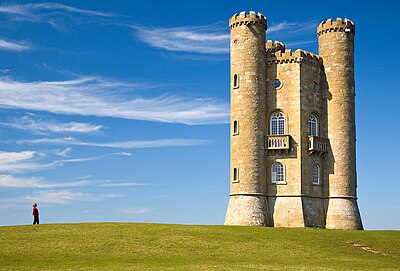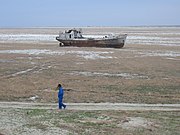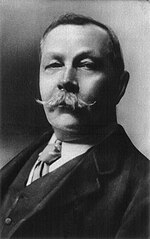User:Wiki User 68/My Portal
Wiki User 68/My Portal
 |
 |

| |

Wiki User 68 hails from the Great British Isles specifically England which is a country that is part of the United Kingdom.[1][2][3] Its inhabitants account for more than 83% of the total UK population,[4] whilst its mainland territory occupies most of the southern two-thirds of the island of Great Britain. England shares land borders with Scotland to the north and Wales to the west and elsewhere is bordered by the North Sea, Irish Sea, Celtic Sea, Bristol Channel and English Channel. The capital is London, the largest urban area in Great Britain, and the largest urban zone in the European Union by most, but not all, measures.[5]
England became a unified state in the year 927 and takes its name from the Angles, one of the Germanic tribes who settled there during the 5th and 6th centuries. It has had a significant cultural and legal impact on the wider world[6] being the place of origin of the English language, the Church of England, and English law, which forms the basis of the common law legal systems of countries around the world. In addition, England was the birth place of the Industrial Revolution and the first country in the world to industrialise.[7] It is home to the Royal Society, which laid the foundations of modern experimental science.[8] England is the world's oldest parliamentary system[9] and consequently constitutional, governmental and legal innovations that had their origin in England have been widely adopted by other nations.
Selected Panorama
Selected Article

Rockingham Castle formerly a royal castle and hunting lodge, now the family home of the Saunders Watson family, in Rockingham Forest on the northern edge of the English county of Northamptonshire a mile to the north of Corby.
Rockingham Castle is often stated as being in the county of Leicestershire. This mistake arises due to Rockingham having a Market Harborough postal address.
It was formerly a Saxon fort and the castle was founded shortly after William the Conqueror arrived in England. It was created because its elevated terrain provided an excellent defence of the surrounding land from the local population. It was used by Norman kings as a retreat when travelling because Rockingham Forest was good for hunting wild boar and deer.
By the time that Henry VIII came to power the castle was in decline and was no more than a hunting lodge for nobles. It was restored during the ensuing centuries following several small skirmishes in the English Civil War and finally restored to its full elegance and grace in the late nineteenth century.
It overlooks the villages of Rockingham and Caldecott and enjoys good views over the Welland Valley. Now privately owned, it is open to the public on certain days.
Rockingham Castle was a popular haunt of writer Charles Dickens who was a great friend of Richard & Levinia Watson, ancestors of the current family. The Castle is the inspiration for Chesney Wold in one of his greatest works, Bleak House.
A cricket pitch lies within the grounds of the castle and is home to Old Eastonians Cricket Club.
Selected Picture

Selected Natural History

Desertification is the degradation of land in arid and dry sub-humid areas, resulting primarily from natural activities and influenced by climatic variations. It is also a failure of the ecological succession process. A major impact of desertification is biodiversity loss and loss of productive capacity, for example, by transition from land dominated by shrublands to non-native grasslands. In the semi-arid regions of southern California, many coastal sage scrub and chaparral ecosystems have been replaced by non-native, invasive grasses due to the shortening of fire return intervals. This can create a monoculture of annual grass that cannot support the wide range of animals once found in the original ecosystem. In Madagascar's central highland plateau, 10% of the entire country has been lost to desertification due to slash and burn agriculture by indigenous peoples. In Africa, if current trends of soil degradation continue, the continent will be able to feed only 25% of its population by 2025, according to UNU's Ghana-based Institute for Natural Resources in Africa.[10] Globally, desertification claims a Nebraska-sized area of productive capacity each year.[11]
Selected Technology

The Seawater Greenhouse is an established technology with the potential to create surplus fresh water from seawater, using a novel form of greenhouse that also provides suitable food-growing conditions in arid regions. Three such units have been built so far. The technique is applicable to only a very limited number of world sites due to the topographic elements essential to the process. The technology won the Tech Museum Award for a 2006 project in Oman,[12] and was a finalist in the 2007 St Andrews Prize for the Environment.[13]
Proposals for the Seawater Greenhouse include the Sahara Forest Project[14][15][16], a scheme that aims to provide fresh water, food and renewable energy in hot arid regions as well as re-vegetating areas of uninhabited desert. This ambitious proposal combines the Seawater Greenhouse and concentrating solar power (CSP) to achieve highly efficient synergies. CSP is increasingly seen as a promising form of renewable energy, producing electricity from sunlight at a fraction of the cost of photovoltaics. By combining these technologies there is huge commercial potential to create a sustainable source of energy, food and water.
The scheme is proposed at a significant scale such that very large quantities of seawater can be evaporated. By using a location that lies below sea level, this can be achieved without pumping and there is an opportunity to capture some of the substantial volumes of residual humidity that leave the greenhouses. A 20,000 hectare area of Seawater Greenhouses will evaporate a million tonnes of seawater per day. If the scheme were located upwind of higher terrain then the air carrying this ‘lost’ humidity would rise and contribute to forming mist, cloud and dew. It would then be possible to harvest this precipitate using fog-nets that can supply tree saplings with water and thereby reverse the process of desertification, returning barren land to forest[17].
The scheme was first publicly proposed to a group of energy specialists at the third Claverton Energy GroupConference held at the Headquarters of Wessex Water Plc on April 13 2008 updated [18]
In the news


- 4 June 2024 –
- The National Health Service declares a "critical incident" after several hospitals in London, including King's College Hospital, say they have cancelled appointments and turned away patients after a cyberattack on their Synnovis IT systems. (AP)
- 1 June 2024 – 2023–24 UEFA Champions League
- In association football, Real Madrid win a record 15th Champions League title after defeating Borussia Dortmund 2–0 in the final at Wembley Stadium in London, England. (CNN)
- 29 May 2024 –
- Four people are injured in a mass shooting in Dalston, London, UK. (BBC News)
- 25 May 2024 – 2023–24 FA Cup
- Manchester United win their 13th FA Cup title after beating the defending champions, Manchester City, by a score of 2–1 in the final at Wembley Stadium in London, England. (The Guardian)
- 21 May 2024 – Singapore Airlines Flight 321
- A Singapore Airlines flight from London, England, to Singapore makes an emergency landing at Suvarnabhumi Airport in Bangkok, Thailand, after experiencing severe air turbulence over the Bay of Bengal, resulting in one death and at least 30 injuries. (BBC News)
Selected Biography

Sir Arthur Ignatius Conan Doyle, DL (22 May 1859 – 7 July 1930) was an author most noted for his stories about the detective Sherlock Holmes, which are generally considered a major innovation in the field of crime fiction, and for the adventures of Professor Challenger. He was a prolific writer whose other works include science fiction stories, historical novels, plays and romances, poetry, and non-fiction.
Arthur Conan Doyle was born on 22 May 1859, in Edinburgh, Scotland, to an English father of Irish descent, Charles Altamont Doyle, and an Irish mother, née Mary Foley, who had married in 1855.[19] Although he is now referred to as "Conan Doyle", the origin of this compound surname is uncertain.[20] Conan Doyle's father was a chronic alcoholic, and was the only member of his family who, apart from fathering a brilliant son, never accomplished anything of note.
Selected Geography

The Arctic Ocean, located in the Northern Hemisphere and mostly in the Arctic north polar region, is the smallest, and shallowest of the world's five major oceanic divisions.[21] The International Hydrographic Organization (IHO) recognizes it as an ocean, although some oceanographers call it the Arctic Mediterranean Sea or simply the Arctic Sea, classifying it as one of the mediterranean seas of the Atlantic Ocean.
In geology, permafrost or permafrost soil is soil at or below the freezing point of water (0 °C or 32 °F) for two or more years. Ice is not always present, as may be in the case of nonporous bedrock, but it frequently occurs and it may be in amounts exceeding the potential hydraulic saturation of the ground material. Most permafrost is located in high latitudes (i.e. land in close proximity to the North and South poles), but alpine permafrost may exist at high altitudes in much lower latitudes.
The extent of permafrost can vary as the climate changes. Today, a considerable area of the Arctic is covered by permafrost (including discontinuous permafrost). Overlying permafrost is a thin active layer that seasonally thaws during the summer. Plant life can be supported only within the active layer since growth can occur only in soil that is fully thawed for some part of the year. Thickness of the active layer varies by year and location, but is typically 0.6–4 m (2 to 12 feet) thick. In areas of continuous permafrost and harsh winters the depth of the permafrost can be as much as 1493 m (4510 ft) in the northern Lena and Yana River basins in Siberia. Permafrost can also be a storage of carbon. One estimate is that 1700 Gt of carbon are stored within the permafrost worldwide.
Categories
Selected quote
Primeval man stumbled along with peering eyes, and slow, uncertain footsteps. Now we walk briskly towards our unknown goal.
- Sir Arthur Ignatius Conan Doyle
- (22nd May 1859 - 7th July 1930).
- The Stark Munro Letters, 1894.
Did you know?
- ...that optimistic estimations of peak oil production forecast the global decline will begin by 2020 or later, and assume major investments in alternatives will occur before a crisis, without requiring major changes in the lifestyle of heavily oil-consuming nations. These models show the price of oil at first escalating and then retreating as other types of fuel and energy sources are used?[22]
- ...that if the Greenland ice-sheet melted through global warming, it would raise the global sea level by 7 meters, or 22 feet?
Topics
Related portals
WikiProjects
 |
||
| WikiProject Africa | WikiProject Cape Verde | WikiProject Council |
Things to do
Wikimedia
- ^ The Countries of the UK statistics.gov.uk, accessed 10 October, 2008
- ^ "Countries within a country". 10 Downing Street. Retrieved 2007-09-10.
The United Kingdom is made up of four countries: England, Scotland, Wales and Northern Ireland
- ^ "ISO 3166-2 Newsletter Date: 2007-11-28 No I-9. "Changes in the list of subdivision names and code elements" (Page 11)" (PDF). International Organisation for Standardisation codes for the representation of names of countries and their subdivisions -- Part 2: Country subdivision codes. Retrieved 2008-05-31.
ENG England country
- ^ National Statistics Online - Population Estimates. Retrieved 6 June 2007.
- ^ The official definition of LUZ (Larger Urban Zone) is used by the European Statistical Agency (Eurostat) when describing conurbations and areas of high population. This definition ranks London highest, above Paris (see Larger Urban Zones (LUZ) in the European Union); and a ranking of population within municipal boundaries also puts London on top (see Largest cities of the European Union by population within city limits). However, research by the University of Avignon in France ranks Paris first and London second when including the whole urban area and hinterland, that is the outlying cities as well (see Largest urban areas of the European Union).
- ^ England - Culture. Britain USA. Retrieved 12 September 2006.
- ^ "Industrial Revolution". Retrieved 2008-04-27.
- ^ "History of the Royal Society". The Royal Society. Retrieved 2008-09-03.
- ^ "Country profile: United Kingdom". BBC News. Retrieved 2009-04-27.
- ^ Africa may be able to feed only 25% of its population by 2025
- ^ Environmental failure: a case for a new green politics
- ^ Tech Museum Award 2006
- ^ St Andrews Prize for the Environment
- ^ The Sahara Forest Project http://www.exploration-architecture.com/section.php?xSec=35
- ^ "Seawater greenhouses to bring life to the desert". The Guardian. 2008-08-03.
- ^ Fourth World Conference on the Future of Science "Food and Water for Life" - Venice, September 24-27, 2008
- ^ The Sahara Forest Project - food, water, biomass from the uninhabited Sahara Desert http://uk.groups.yahoo.com/group/waterenergygroup/message/48
- ^ http://www.claverton-energy.com/the-sahara-forest-project-%E2%80%93-a-new-source-of-fresh-water-food-and-energy.html
- ^ Lellenberg, Jon; Daniel Stashower; Charles Foley (2007). Arthur Conan Doyle: A Life in Letters. HarperPress. pp. 8–9. ISBN 978-0-00-724759-2. Stashower, Daniel (2000). Teller of Tales: The Life of Arthur Conan Doyle. Penguin Books. pp. 20–21. ISBN 0-8050-5074-4.
- ^ Stashower says that the name originated from his great-uncle Michael Conan, a distinguished journalist, from whom Arthur and his elder sister, Annette, received the compound surname of "Conan Doyle" (Stashower 20 – 21). The same source points out that in 1885 he was describing himself on the brass nameplate outside his house, and on his doctoral thesis, as "A. Conan Doyle". However, other sources (such as the 1901 census) indicate that Conan Doyle's surname was "Doyle", and that the form "Conan Doyle" was only used as a surname in his later years.[citation needed]
- ^ Michael Pidwirny (2006). "Introduction to the Oceans". www.physicalgeography.net. Retrieved 2006-12-07.
- ^ "CERA says peak oil theory is faulty". Cambridge Energy Research Associates (CERA). 2006-11-14. Retrieved 2008-07-27.


























